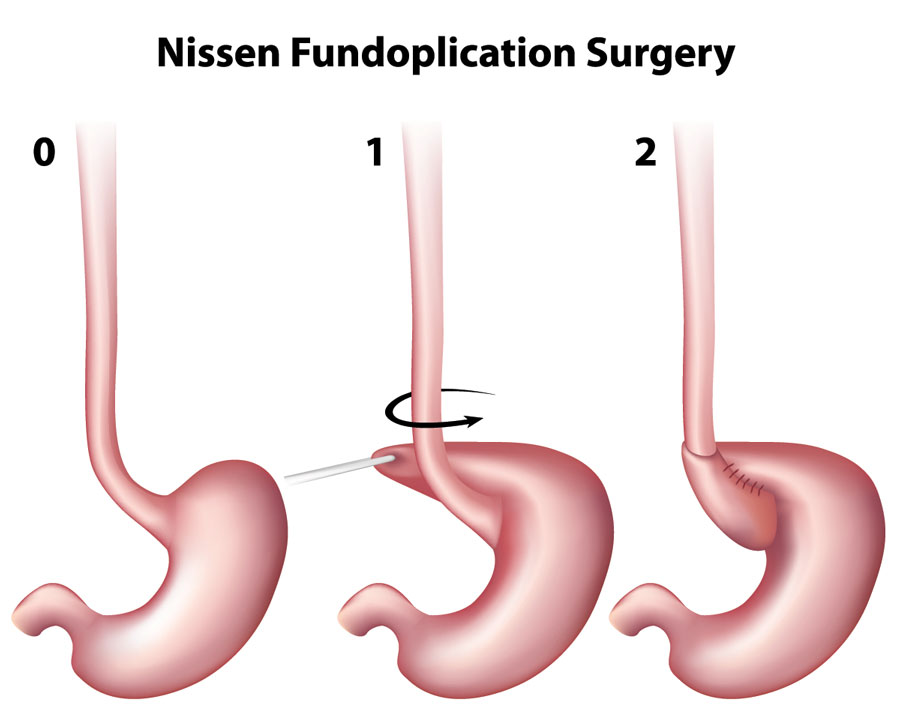Surgery for Reflux
Gastro-oesophageal reflux occurs when acid contents from the stomach appear in the gullet or oesophagus in much higher volumes than normal, causing unpleasant symptoms and potentially damaging the oesophagus.
Ongoing acid reflux can predispose to...
- Inflammation of the oesophagus (oesophagitis)
- Impaired sleep and quality of life
- Barrett's metaplasia (can turn into cancer)
- Pulmonary and laryngeal inflammation and dysfunction
Non-surgical approaches to treatment
Sleep up on an angle. Use a foam wedge, multiple pillows or an adjustable bed. Sit upright for a period after meals. Medications are usually effective including anti-acid tablets (e.g. Losec, Nexium)
Reasons to consider fundoplication surgery:
- Severe, intractable reflux, poorly controlled by medication, impacting adversely on quality of life
- Young patients with reflux who do not wish to be medication dependent for the rest of their lives
Anti-Reflux Surgery
The floppy fundus of the stomach (up the top) can be wrapped around the lower end of the oesophagus to create a kind of pressure valve to prevent reflux. This is done with keyhole surgery in almost all cases. The wrap can be done fully (Nissen operations) or partially, for example the Toupet 270° wrap.

Alternatively patients suffering from obesity may consider roux en y gastric bypass surgery which should treat both the reflux and obesity effectively or even gastric band surgery.
Outcomes of Surgery
In over 90% of cases there is excellent control of reflux or regurgitation. In some of the other 10% it may be that the symptoms they were experiencing were not reflux after all. Predictors of success from the surgery include improvement of symptoms pre-operatively with anti-acid tablet and good symptom correlation with reflux episodes on formal pH testing.
Occasionally patients have adverse effect from anti-reflux surgery which may include certain foods such as bread sticking in the lower gullet (10%) or bloating due to gas accumulation.